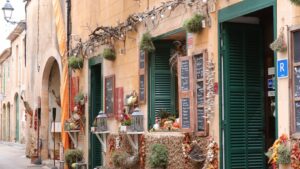Spain’s vibrant culture, stunning landscapes, and rich history make it a top destination for travelers worldwide. From the bustling streets of Madrid to the sun-soaked beaches of Costa del Sol, there’s something for everyone. To fully enjoy all that Spain has to offer, some insider knowledge is essential. Here are key travel tips to help you experience Spain like a local.
Travel Tips for Spain
Entry Requirements
Spain is part of the Schengen Area, allowing many travelers, including US citizens, to enter visa-free for up to 90 days.
Budget and Currency
Spain uses the euro (€). ATMs are widely available, and while credit cards are accepted almost everywhere, carrying cash for small purchases is recommended.
Health and Safety
Spain boasts high healthcare standards, but travel insurance is recommended.
Weather and Clothing
The climate varies across Spain. Madrid can have hot summers, while coastal areas like Barcelona enjoy milder temperatures.
Language and Communication
Spanish is the official language. Learning a few basic phrases can enhance your interactions, though English is commonly spoken in tourist areas.
 Public Transport
Public Transport
Spain offers an excellent public transport system. Major cities like Madrid and Barcelona have extensive metro networks, along with buses and trams for easy access.
Train Travel
High-speed AVE trains connect major cities quickly.
Car Rentals
Renting a car provides flexibility, especially for exploring rural areas. Major companies like Europcar and Hertz operate in Spain. Drivers must be at least 21 years old and hold a valid license.
Buses
Long-distance buses, like those operated by ALSA, are a budget-friendly option for travel. For example, a bus from Seville to Granada costs around €20.
Domestic Flights
Flying is a quick option for longer distances, with airlines like Iberia offering frequent short flights—such as Madrid to Seville, which takes about 1.25 hours.
Taxis and Ridesharing
Taxis are readily available in urban areas, and ridesharing services like Uber and Cabify offer convenient alternatives.
Accommodation Tips
Booking in Advance
Booking your accommodation early is crucial, especially in popular destinations like Barcelona, Madrid, and Seville, which see high demand during peak seasons.
Types of Accommodation
Spain offers a variety of lodging options:
- Luxury Hotels

- Mid-Range Hotels
- Budget Hostels
- Vacation Rentals
- Paradores (historic hotels)
Amenities and Services
Check for essential amenities, such as Wi-Fi, air conditioning, and breakfast options. Some accommodations also offer parking facilities, which can be important if you’re renting a car.
Reviews and Ratings
Read reviews on sites like TripAdvisor or Booking.com to gain insights into cleanliness, service quality, and location convenience from previous guests.
Cultural Etiquette
Greetings and Respect
Use “Hola” for casual greetings and “Buenos días/tardes/noches” for formal occasions. Address elders with “usted” to show respect.
Punctuality
Punctuality is important in professional settings, but social events are more relaxed. Arriving 15 minutes late is generally acceptable. If invited for a meal, arrive on time and bring a small gift, like wine.
Meal Times
Lunch typically occurs between 2 PM and 4 PM, and dinner starts after 9 PM. Enjoy tapas in the evening, as restaurants may close between meals.
Tipping
Tipping is less common in Spain; a tip of 5-10% is sufficient, or simply round up the bill at cafes.
Dress Code
Dress codes vary: urban areas tend to be more fashionable, while coastal regions are more casual. Modest clothing is required when visiting religious sites.
Festivals
Engage in local festivals like La Tomatina and San Fermín, but always respect local customs and practices.
Language Tips
Learn basic phrases like “por favor” (please), “gracias” (thank you), and “perdón” (excuse me) to enhance your interactions and show appreciation for the culture.
 Food and Drink
Food and Drink
Spain’s cuisine is vital to its culture. Tapas, such as patatas bravas and gambas al ajillo, are popular in bars across the country. For a traditional dish, try Valencia’s paella.
Regional Specialties
- Basque Country: Sample pintxos (skewered snacks).
- Galicia: Enjoy seafood dishes like pulpo a la gallega (octopus).
- Andalusia: Try gazpacho (cold soup) and jamón ibérico (cured ham).
Wine and Beverages
Spain is renowned for its wines, especially Rioja for reds and Albariño for whites.
Food Festivals
Participate in food festivals like La Tomatina and San Sebastián Gastronomika for an immersive culinary experience.
Money and Budgeting
Careful budgeting enhances the travel experience. Using the euro, be mindful of exchange rates and transaction fees. Carry cash for smaller establishments while using credit cards for larger purchases. Accommodation and dining costs can vary widely, so choose options that suit your budget.
Travel insurance is essential for covering unexpected expenses. With careful planning and budgeting, travelers can fully enjoy Spain’s rich cultural and historical offerings without financial stress.


